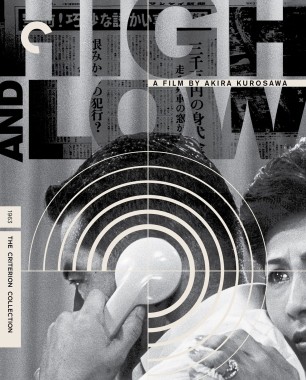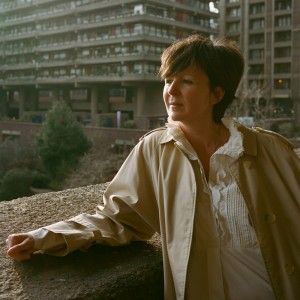
Gary Giddins’s Top10
In honor of his participation in our release of Louis Malle’s jazzy noir classic Elevator to the Gallows, we invited music critic Gary Giddins to contribute a list of his ten favorite Criterion films. Giddins: "Just ten? Obviously impossible, but I've narrowed the field somewhat by focusing on crime films. Even so, choosing randomly, I've only scratched the surface (no Hitchcock, Melville, Clouzot, Suzuki, Imamura, Godard, Becker, or Malle, for starters)." In no particular order:
Photo by Herman Leonard
-
1
Fritz Lang
M
No filmmaker gets under my skin more consistently than Fritz Lang, and while M lacks some of the paranoid extravagance of his silent fantasies, it is flawless. Peter Lorre ingeniously incarnates the evolution from lizard to man, and the director’s every shot and sound underscores the excitement of cinema in the process of discovering its own power. One of the disc’s extras finds Claude Chabrol unsuccessfully attempting to mimic a Lang camera move. The new Criterion print, with a corrected aspect ratio and restored fade-out line, burnishes the film’s deathless vitality.
-
2
Preston Sturges
The Lady Eve
Okay, I’m cheating: no one is murdered, and the confidence men and cardsharps are lovable. Still. This is Preston Sturges’s peak—a comedy that has not dated one whit, for which everyone involved, not least the actors (Henry Fonda and Barbara Stanwyck, supported by a quartet of inspired scene stealers: Charles Coburn, Eugene Pallette, Eric Blore, William Demarest), seems to have been thoroughly stimulated. Demarest’s closing line is perfect.
-
3
Samuel Fuller
The Naked Kiss
Why did Constance Towers have such an abbreviated career in the movies? She’s wonderful in Sam Fuller’s perverse examination of perversity, launching the film by beating up her pimp (you might say she wigs out) and closing it by identifying a child molester through the revelation of his naked kiss. It’s a drunken tabloid party, almost absurdly brazen.
-
4
Akira Kurosawa
High and Low
One of the greatest urban crime films ever made. The first hour takes place in an industrialist’s living room, with huge picture windows that look over the city without seeing it, yet Kurosawa’s camera work is so deft and inventive you never feel the constriction—only pummeling suspense and a moral quandary. Toshiro Mifune plays coat-and-tie decency as well as he does his wild men, and Kurosawa descends into the lower depths with blinding clarity.
-
5
Jules Dassin
Night and the City
Jules Dassin’s tour of the London underworld glistens with inky blacks, swirls of smoke, pockets of isolated light, a mise-en-scène broken into Mondrianesque squares, and stunning performances by Francis L. Sullivan, Googie Withers, a Greek wrestler named Zbyszko, and, in the defining performance of a career that ought to get one of those sorry-we-overlooked-you lifetime-achievement Oscars, Richard Widmark, who indulges a brief moment of elation by hurtling a stair railing to affect an incongruous pose of Chaplinesque delight.
-
6
Laurence Olivier
Richard III
Olivier’s best film as a director and maybe as an actor. With the help of excellent source material, he gives us a masterly criminal who narrates his villainy before executing it, trusting that his will, brains, oily charm, and relentless commitment will serve him, until it no longer does. Like Rupert Pupkin, he’d rather be king for a day than a shmuck for a lifetime. Every time I watch it, I think: “This time Anne will resist him.” She never does.
-
7
Orson Welles
The Complete Mr. Arkadin
Criterion’s comprehensive edition of this long-undervalued film is a major DVD event, though it may not enlarge the film’s fan base. The problems, beyond a few incomprehensible plot points, include a dreadful lead performance by Nixon look-alike Robert Arden, who is surrounded by terrific actors in the margins (Akim Tamiroff, Michael Redgrave, Mischa Auer, Katina Paxinou), plus gorgeous Paola Mori; the result feels a bit like Hamlet without Hamlet. Then there is Welles’s wig and beard, evidently borrowed from a junior high school performance of Faust. Never mind: there are many, many unforgettable moments, and the plot is so good—detective as inadvertent Judas goat—that a fine, conventional film could still be made from the same material. Criterion includes the surprisingly good novel, which Welles variously took and denied credit for. In my hearing, he took credit.
-
8
Marcel Carné
Children of Paradise
The love story is so powerful, the spectacle so grand, that Marcel Carné’s masterpiece (an indispensable Criterion production) isn’t often regarded as a genre piece, though it is inhabited by every kind of criminal and involves an unforgettable murder in a Turkish bath—made particularly ghastly for occurring just off camera. Yet Marcel Herrand’s Lacenaire is one of the cinema’s most fascinating monsters, and his machinations resolve the fate of everyone else, including the muse incarnated by the great Arletty.
-
9
Carol Reed
The Third Man
“In what ca-TEG-ory would you put Mr. James Joyce?” Or, for that matter, this film? Among other things, I’d call it the best gangster picture ever made. Orson Welles got the most mileage from it (including a radio spin-off that recast the swinish Harry Lime as a good-natured rogue), a renown I find difficult to fathom, given the superb ensemble work by Joseph Cotten, Trevor Howard, Alida Valli, Bernard Lee, Wilfred Hyde-White, and a doctor who pronounces his name VINK-el. Carol Reed’s direction makes the most of every incident, and the whole package is tied up with one of the best musical scores ever.
-
10
Leonard Kastle
The Honeymoon Killers
One of my favorite films of recent years is A History of Violence, but I don’t share the notion that we are implicated in its violence. Where is the conflict in seeing psycho killers rubbed out? In Leonard Kastle’s sole film, however, we are painfully implicated. The victims, all defenseless women and a child, are brutally murdered in a context so unreasonably entertaining that we hate ourselves for not turning away. The setup for the most grueling of these murders appears to be an homage to the Turkish-bath scene in Children of Paradise.














